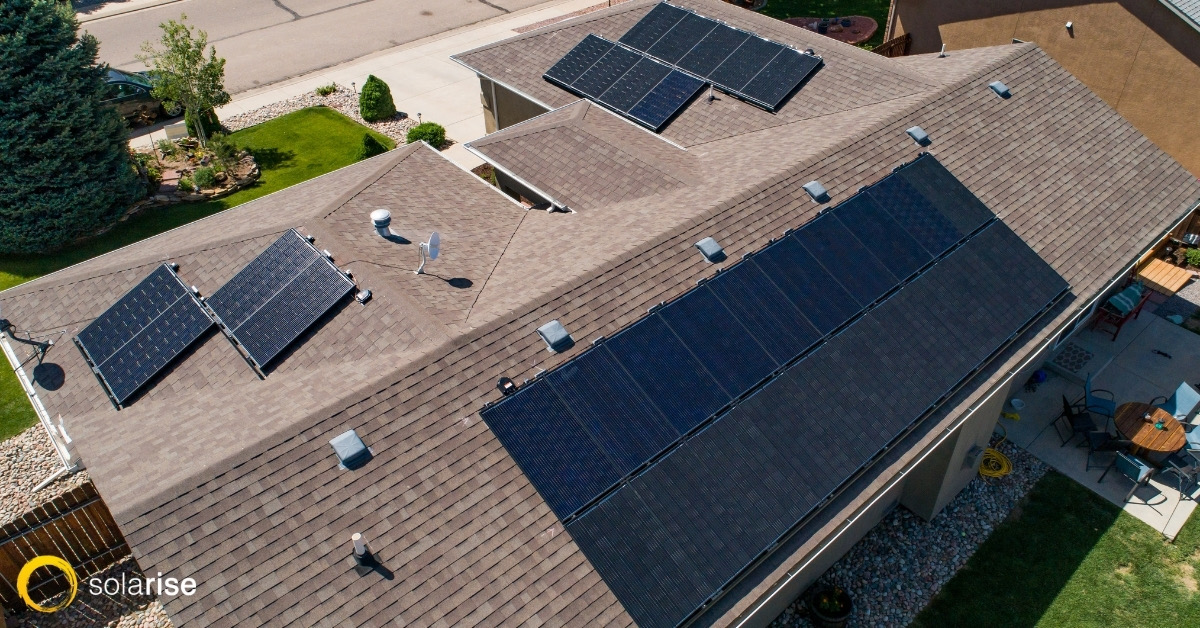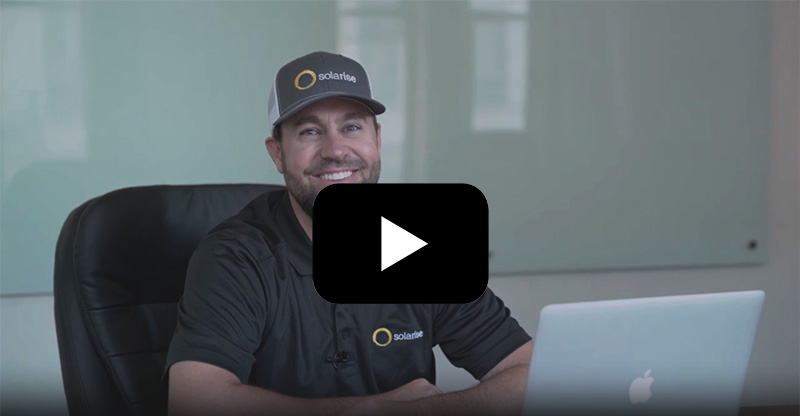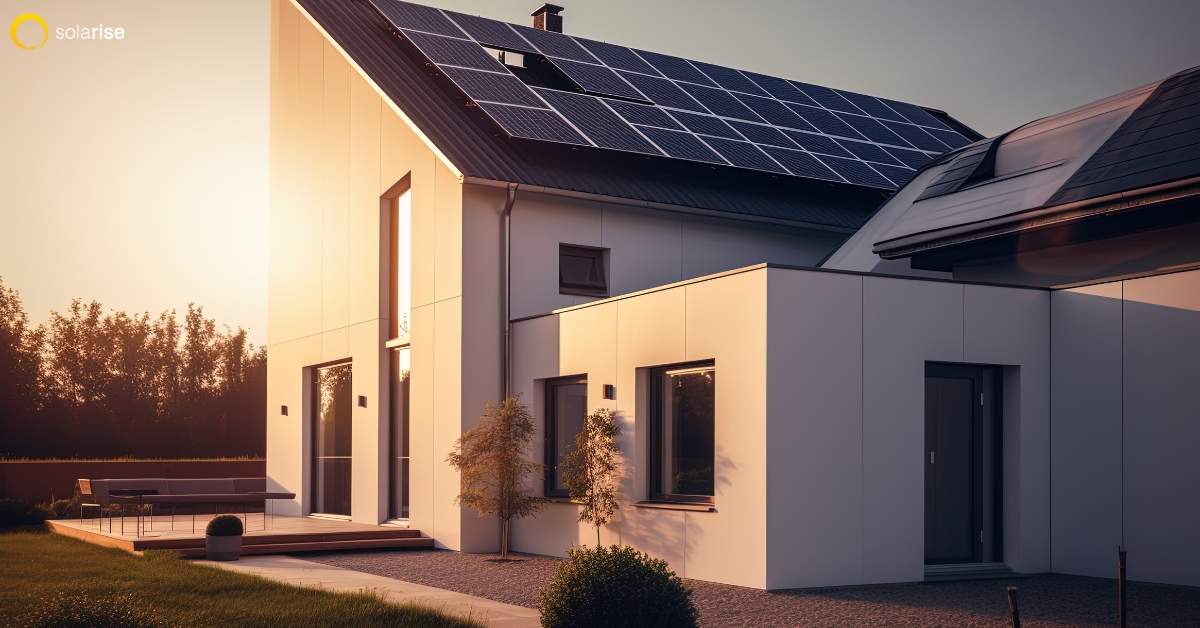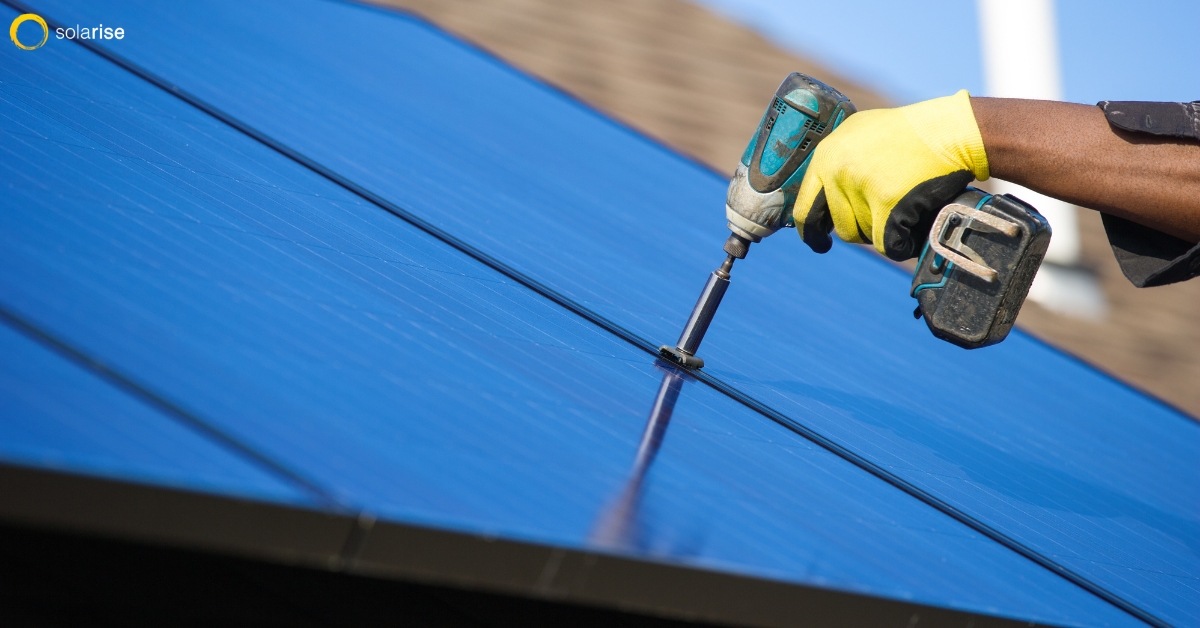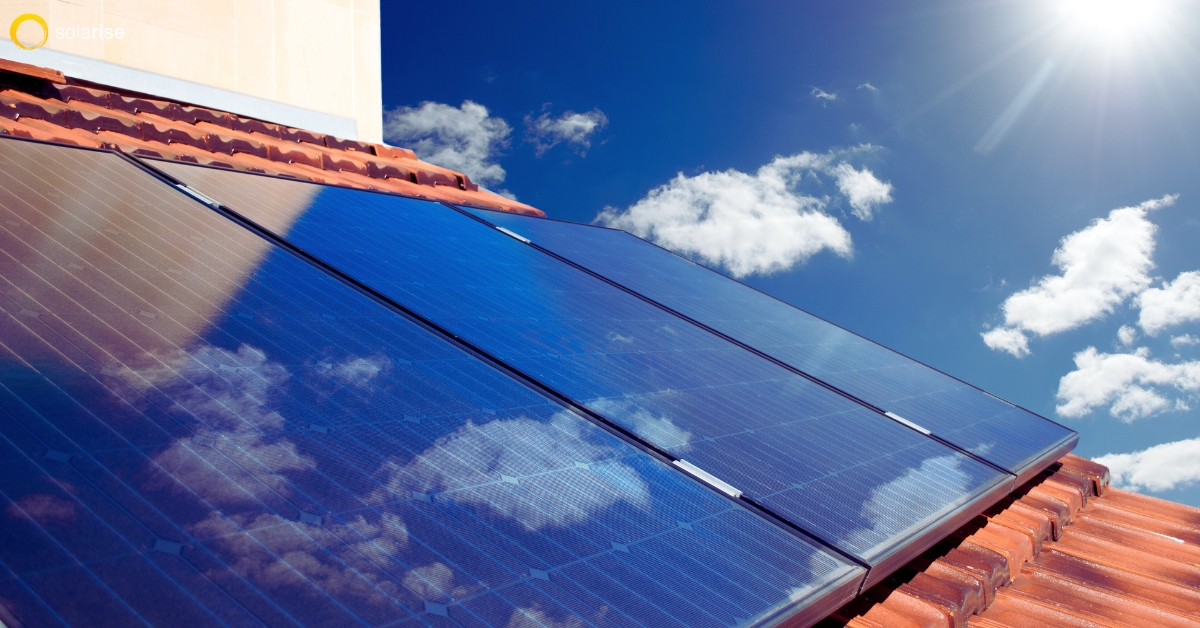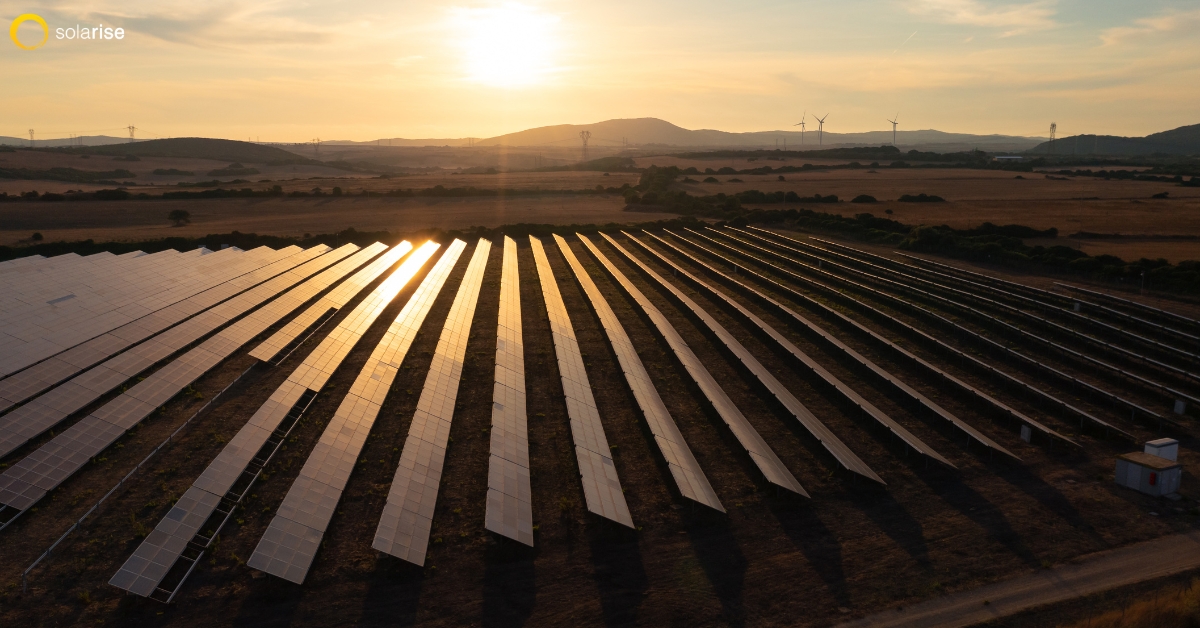Colorful Colorado is an excellent place for solar panels! Residents of the Centennial State enjoy several sunny days per year that are well above the national average. Residential solar panels in Colorado can overproduce the power needed for homes during the long summer days. When days are shorter in winter, the panels may be blanketed with snow, producing less power. In this way, the electricity production can balance out annually to produce an amount that enables you to run your whole house on solar energy alone!
Click to jump to section:
Can I Run My Whole House on Solar Energy?
With a modern solar energy system, including power storage, you can definitely run a whole house completely on solar power. Today’s high-efficiency solar panels and solar batteries make it cheaper than ever before to power an entire home exclusively using solar energy.
Solar panel systems and solar panel installation costs have continued to drop over the past two decades since the broad introduction of residential and commercial solar energy use. This is even though local and federal government rebates and tax credits, and utility company incentives continue to decline with each passing year. The major drop in solar costs is partly due to the broader national and global adoption of solar energy and partly due to the rapid advancements in solar energy systems technologies.
To determine the cost-effectiveness and other feasibility factors in operating a fully solar-powered house, start with these initial basic assessments:
Calculate how much electricity you use per month.
First, determine how much solar energy you’ll need to produce to power your entire home with 100% solar energy. To do that, you’ll need to know how much electricity you use monthly on average. This will enable your solar contractor to calculate how much power your panels need to generate to power your entire home each month.
Of course, the amount of monthly usage and potential for solar power production can both be expected to vary through the year. The solution to ensuring a steady power supply for your home is in the reserve capacity of today’s state-of-the-art residential solar battery storage. Your solar batteries allow you to store the excess power your solar panels produce on longer, sunnier days for later use anytime you need it during less sunny periods.
Through periods of less direct, intense sunlight, solar batteries ensure you have all the power you need to run your entire home without the system automatically begins to draw from the public power grid.
Evaluate your climate region’s solar energy production capacity.
The climate you live in makes all the difference in whether you can expect to generate enough solar energy to power your whole house year-round. Evaluate the potential of the climate in your region to enable enough solar energy production to power your whole house continuously.
For homeowners living in colder, cloudier regions, such as along the northwest Pacific coast, running a house entirely on solar during the winter months may be more problematic. Residents may not see direct sunlight for periods of weeks, whereas people living in southwestern states may not see a cloudy day for weeks.
These climatic differences, along with factors specific to your home and lifestyle, can make the difference between being able to function entirely off the public power grid or continuing to draw at least some electricity from your utility company.
Assess your solar production environment based on your home’s surroundings.
Consider the amount and proximity of large trees growing around and near your home and the heights of houses and other structures near your house. Big trees and tall houses that are close enough to your home that they cast heavy shade across your roof during more than a third of the sunny hours can noticeably reduce the productivity of your solar energy system.
How to Run Your Whole House on Solar?
The great news is that none of the above concerns will keep you from being able to run your home on solar energy more effortlessly than ever in the past. Solarise has performed many thousands of solar installations in Colorado, so our estimators have a thorough understanding of all the considerations necessary to help you successfully transition exclusively to solar energy.
Again, the key to going solar exclusively for your home is the number of panels you will need for adequate energy production and storage. Our highly experienced professional solar energy estimators will determine how many solar panels to run a house off the grid based on several specifics. These include your region, home size, typical historical usage, family size, expected future increases, if applicable, and other major and minor factors.
Maximize Your Home Solar Production with Solarise Solar!
We have helped over 15,000 Colorado homeowners get the best value on solar panel purchase and installation. Our systems design specialists will customize a whole-home solar energy system that ideally fits your energy usage needs and budget. Going solar with the right equipment and strategic installation can save you money, increase your property value, and bring you a strong return on your investment.
Call Solarise Solar in Colorado Springs, Colorado at (719) 315-3034, or use our online contact form to schedule your free Home Energy Cost Analysis and no-obligation estimate today!
